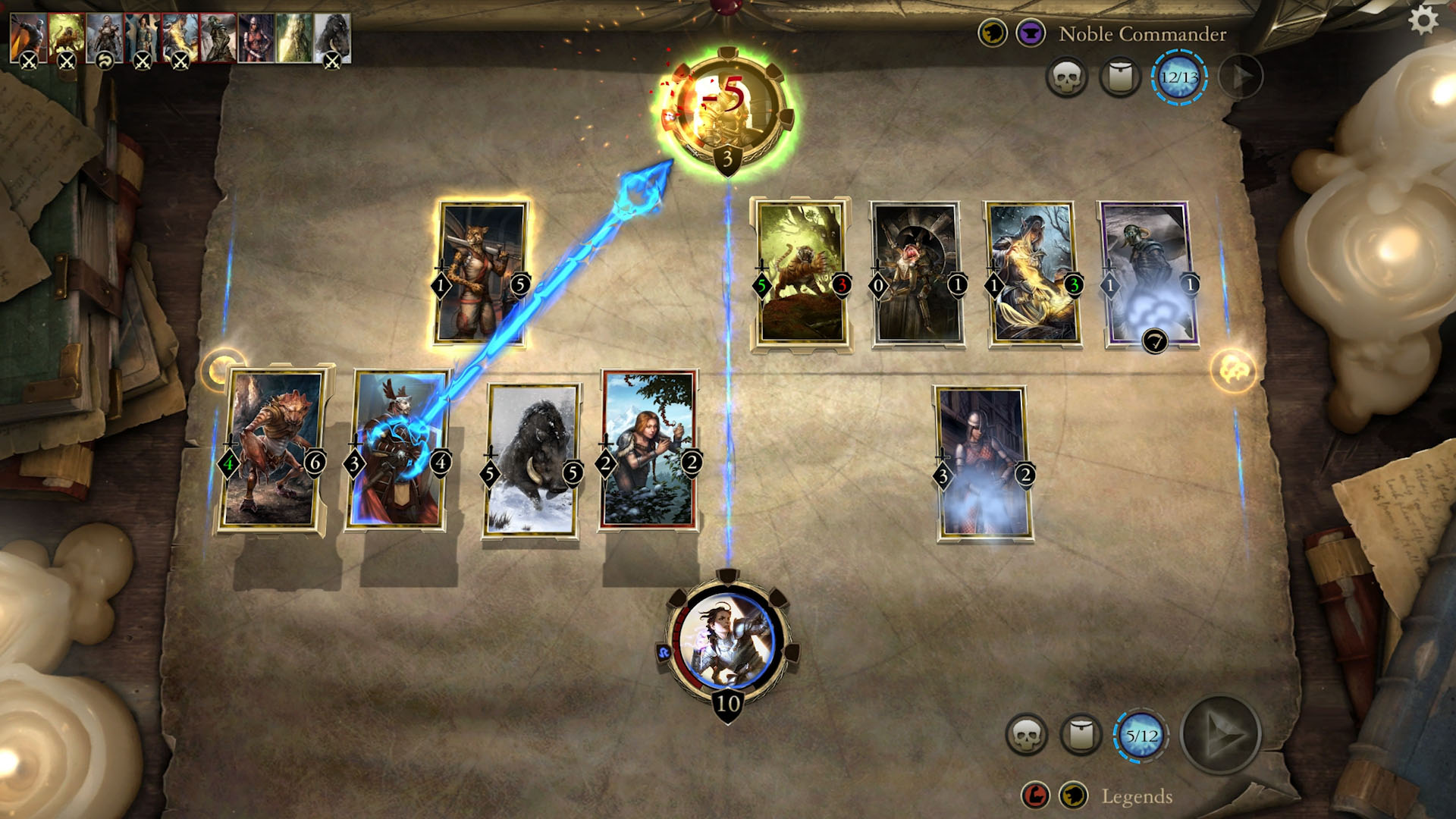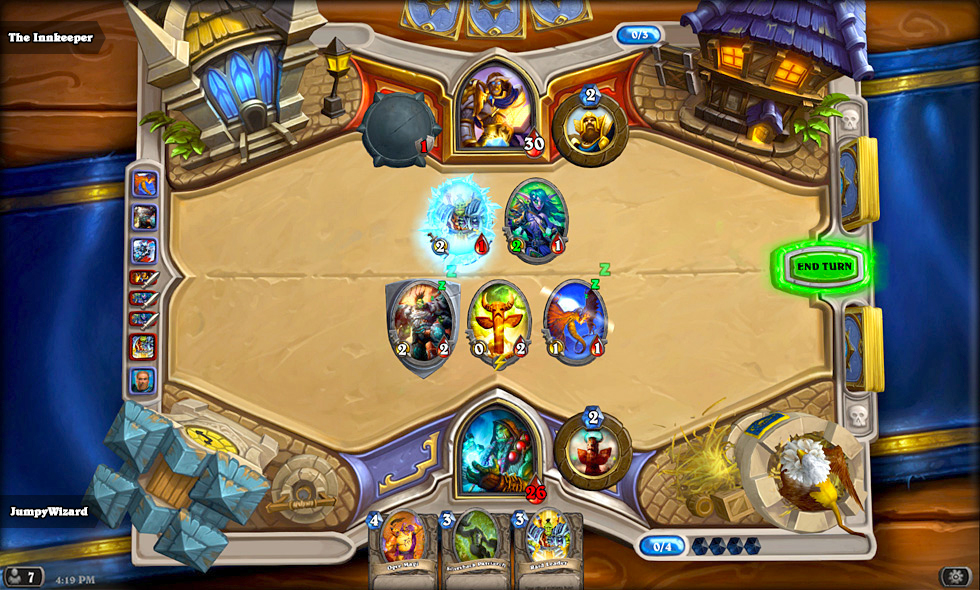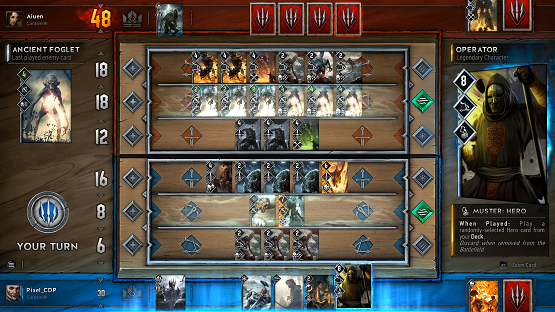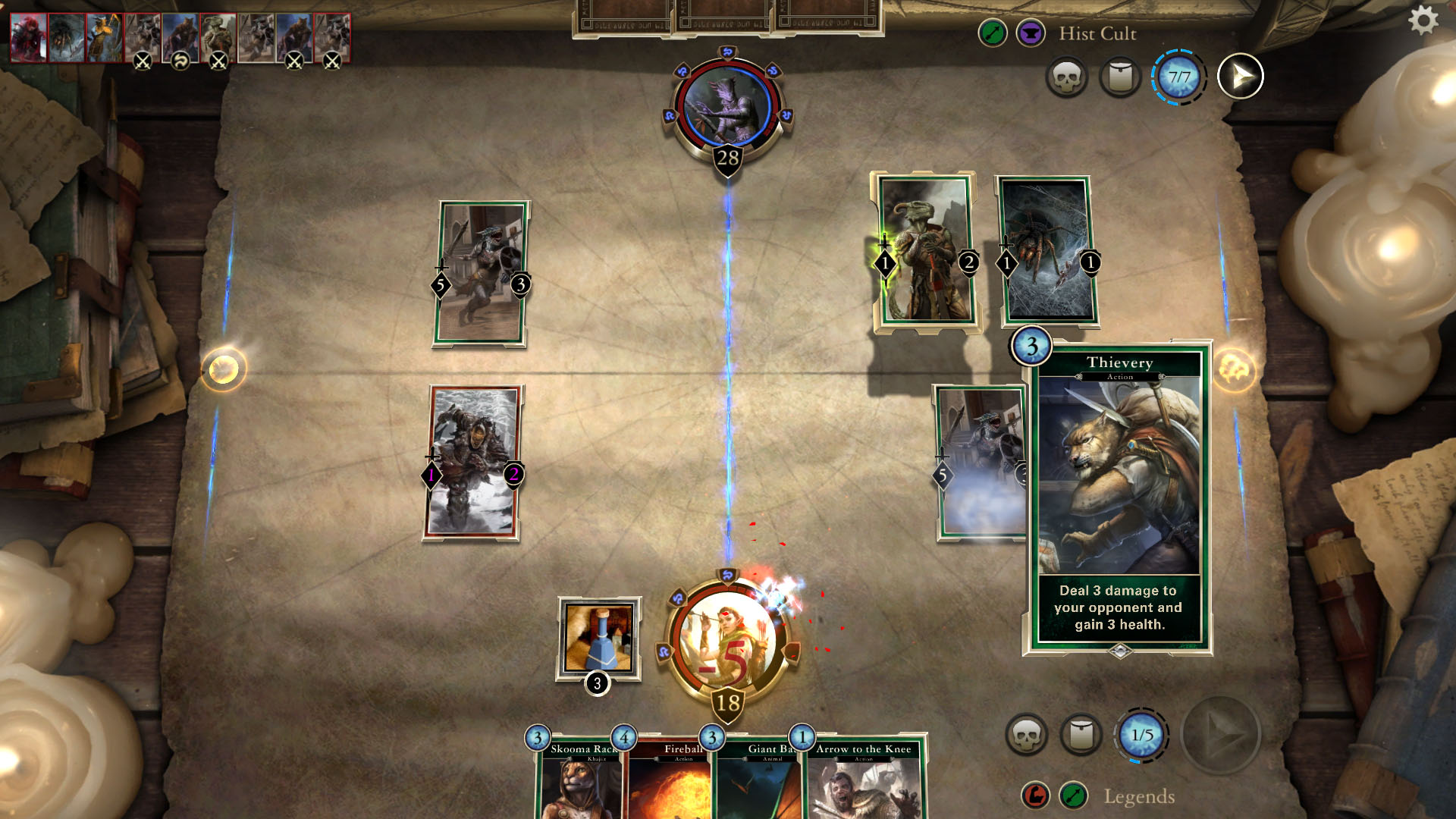It’s the invasion of the card game spinoffs (and I feel fine)

Take a quick scan of gaming news headlines from the past few months and you wouldn’t be remiss in thinking that everyone and their mother is working on a card game spinoff. Franchises from World of Warcraft to Plants vs Zombies have collectible card games currently on the market. And more keep coming. The Witcher, The Elder Scrolls, and now Titanfall are all getting their own iterations of the card battling concept.
At some point – and many have already gotten there – players are bound to ask why. Why are these games getting made? Aren’t there enough of them already? Who’s going to want another CCG?
The cynical reader might answer that these moves into card games are purely cash grabs. And sure, perhaps they are. It’s hard to imagine there aren’t studio execs who looked at Hearthstone and said, “Yep, we want in on that racket.”
But I’m not jaded enough to see all of these announcements as greed moves. The more I think about it, the more I think this trend of mobile card games has the potential to be a positive development for fans of big gaming franchises. A well-crafted card game can condense the best parts of a triple-A title into a new creation that you can play at any time and any place.

Discussions of a card game spinoff will eventually come around to Hearthstone, since it was the title paving the way for this trend. Blizzard’s hit game based on the World of Warcraft universe was one of the first to have real success with translating the collectible card game format into a digital service. Some of the most devoted fans of the CCG genre found Hearthstone’s approach lacking in complexity, but the game has still managed to convert scores of fans. It had 50 million registered players as of April, and the Whispers of the Old Gods expansion boosted the game to a record high of time spent in-game in Q2 2016.
That happened for a bunch of reasons. Hearthstone was intentionally made to be accessible, encouraging first-time CCG players to take a shot. It’s free to play, so no barrier to just trying it out. But what elevates Hearthstone to powerhouse status is how well it distilled the best things about the game it draws from.
World of Warcraft is fun. It’s funny. It tells an epic fantasy tale laced with quirkiness, pop culture jokes, and Hearthstone takes a very good CCG and infuses it with the essential experience of being in Azeroth. So even if card games aren’t your jam, you’d be hard-pressed to find a WoW player who won’t smile at some of the card scripts, voice lines, or minion interactions.
Scope is important here. Most of the franchises throwing their proverbial hats in the card game ring also have unique, special worlds. They are huge creations with sprawling systems for dialogue and customization, choice and combat that players fall in love with. And those worlds exist exclusively within a console or a gaming PC. There might be novels or comics or other supporting lore that you can get outside of that hardware, but the only ways to actually play those games are at home, tethered to your machine.

It’s possible that smartphones, or whatever miracle gadget succeeds them, will eventually have the processing power to run a game at the level of system complexity and graphical beauty of, say, The Witcher 3. And there might even be some cool tech-to-brain mind-meld that would take care of the game’s controls for you. But until that day, a mobile as a gaming platform does have some limitations for what will and won’t work. Devs are pushing those boundaries every day, but there has yet to be a fully fledged mobile take on an RPG or a shooter that has mobilized the same type of loyal player base as what you’ll find on the beefier hardware.
So you have a dense triple-A game played by serious gamers and a platform that’s better suited toward streamlined mechanics and sometimes targeting a more casual audience. There aren’t many ways those two can play nicely together, but a digital card game is one place where they overlap.
CCGs are one of the oldest, most OG of the geek realms. Magic: The Gathering dates back to a time when most gaming was decidedly uncool, and fandoms from the X-Files to Star Trek got their own takes on the genre during the 90s. There is no disputing your nerd cred if you’re a serious CCG player. Yet because that game style originated with physical cards, the mechanics can all be broken down into the type of if/then statements that a computer can work with. Even a phone’s processor can take care of running those operations. So card games are a genre that even the most hardcore gamer can feel good about playing.
And that’s why I think some entries in the new wave of spinoff card games will succeed. They will give the most dedicated players more ways to spend time in the worlds that they love. If The Elder Scrolls: Legends can draw me even deeper into its universe, make me believe for a match or two that I really am that charismatic khajiit trader, then I’m all for it. If I play those matches while in an airport or waiting at the dentist’s office, so much the better. I’d rather be in Tamriel than either of those places.

Plus there’s the time commitment. Completing a game like The Witcher 3 could take hundreds of hours. Excellence in a game like Titanfall or Call of Duty means thousands and thousands of multiplayer matches. So not only are you stuck in your couch or office chair while playing, but you’re going to be sitting there for a very, very long time. Even for someone who plays games for a living, I’m not going to be able to spend much time in every single title that piques my interest, much less finish all of them. This is a way for me to check out what’s special about a world without investing sixty dollars or sixty hours.
As with any trend, franchise CCGs will probably hit a saturation point. Most people, even ones who really enjoy this genre, probably won’t want to actively play more than a handful. But given the large player bases of most franchises now pursuing spinoffs, even just reaching the most hardcore fans and some curious newbies could still yield a successful game. As long as studios can capture the best qualities of the original games in creating their spinoffs, this could turn out to be an exciting chapter for how a game developer thinks about the worlds they’re building, as well as how and where we play in them.
Sign up to the GamesRadar+ Newsletter
Weekly digests, tales from the communities you love, and more

Anna is a freelance writer who has written for the likes of GamesRadar, Ars Technica, Blizzard Watch, and Mashable. She's also created games as part of various game jams. Anna likes games about solving puzzles and/or shooting things. She wishes she could trade zingers with GLaDOS and have beers with Garrus Vakarian in real life.


